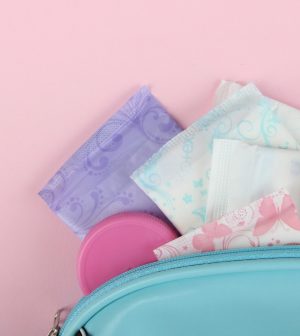- Could Your Grocery Store Meat Be Causing Recurring UTIs?
- Are You Making This Expensive Thermostat Error This Winter?
- Recognizing the Signs of Hypothyroidism
- 10 Strategies to Overcome Insomnia
- Could Artificial Sweeteners Be Aging the Brain Faster?
- Techniques for Soothing Your Nervous System
- Does the Water in Your House Smell Funny? Here’s Why
- Can a Daily Dose of Apple Cider Vinegar Actually Aid Weight Loss?
- 6 Health Beverages That Can Actually Spike Your Blood Sugar
- Treatment Options for Social Anxiety Disorder
Study Finds Arsenic, Lead in Tampon Products

Researchers report they have discovered lead and arsenic in a wide variety of tampon products sold in the United States and Europe.
Testing revealed lead in all 30 tampons from 14 brands obtained from major online retailers and stores in the U.S., the U.K. and Greece, according to a study published July 3 in the journal Environmental International.
“Our findings point towards the need for regulations requiring the testing of metals in tampons by manufacturers,” the researchers wrote.
Their analysis looked for concentrations of arsenic, barium, calcium, cadmium, cobalt, chromium, copper, iron, manganese, mercury, nickel, lead, selenium, strontium, vanadium and zinc. All 16 metals were detected in one product.
More research would be needed to ascertain whether the metals leach out of tampons. Leaching would be a concern since the skin of the vagina is more permeable than other parts of the body, noted researchers led by Jenni Shearston, a postdoctoral scholar at the University of California Berkeley School of Public Health. Any substance entering the bloodstream from the vagina also would not be filtered by the liver, researchers added.
The findings did not name the brands tested, and the U.S. Food and Drug Administration, which regulates tampons in this country, did not respond to a request for comment, CBS News reported.
Organic tampons had less lead and more arsenic than non-organic ones. The study added that those sold in the United States had higher concentrations of lead than those marketed in the Europe.
Tampons are made with cotton, rayon or a combination. Researchers said the metals could have came from the soil through the plants used to make the products. The presence of metals could also be linked to chemicals used in the tampons as antimicrobials or to control odor.
More information
The World Health Organization has more on lead poisoning.
SOURCE: Environmental International, July 3, 2024; CBS News
Source: HealthDay
Copyright © 2026 HealthDay. All rights reserved.










